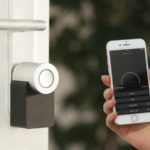 Smart home technologies promise to make various enhancements to the home, thus making the life of inhabitants that bit easier. Alas, new research from the University of Warwick suggests that consumers are far from convinced about the merits of the technology, especially in terms of the privacy and security of it.
Smart home technologies promise to make various enhancements to the home, thus making the life of inhabitants that bit easier. Alas, new research from the University of Warwick suggests that consumers are far from convinced about the merits of the technology, especially in terms of the privacy and security of it.
“Businesses are still actively promoting positive visions of what the smart home means for consumers (e.g., convenience, economy, home security),” the researchers say. “However, at the same time, as we see from our survey results, consumers are actively comparing their interactional experiences against these visions and are coming up with different interpretations and meanings from those that business is trying to promote.”
Smart home technology comes in a range of forms, but is typified by a connected device complete with sensors and machine learning that aims to provide a range of entertainment and management services in the home. They include things like smart speakers and hubs, as well as various lighting, cameras, security, thermostats and other domestic appliances.
The researchers quizzed over 2,000 people across the UK to understand how they feel about the sector, their experiences of using smart home devices, their trust in the reliability of the technology, and their thoughts on the privacy and security aspects of them.
Consumer anxiety
The results suggest anxiety among consumers around the security of the devices, with many believing they’re risking both their privacy and their security whenever they use a smart home device. What’s more, people also tend to feel that when such privacy breaches occur, they’re likely to be significant, which is making people reluctant to adopt the technology.
Of those who have adopted the technology, women appear to be the bigger market, perhaps because societal norms still mean that women are more likely to ‘run’ the house. Adoption was also higher among young people, although those aged over 65 were also high adopters, with the researchers suggesting this is because of their high disposable income and fewer responsibilities.
Despite having the technology, however, this older demographic were also reluctant to use smart home devices as they were most concerned about unauthorized data collection.
“Our study underlines how businesses and policymakers will need to work together to act on the sociotechnical affordances of smart home technology in order to increase consumers’ trust,” the researchers conclude. “This intervention is necessary if barriers to adoption and acceptability of the smart home are to be addressed now and in the future. Proof of cybersecurity and low risk to privacy breaches will be key in smart home technology companies persuading a number of consumers to invest in their technology.”